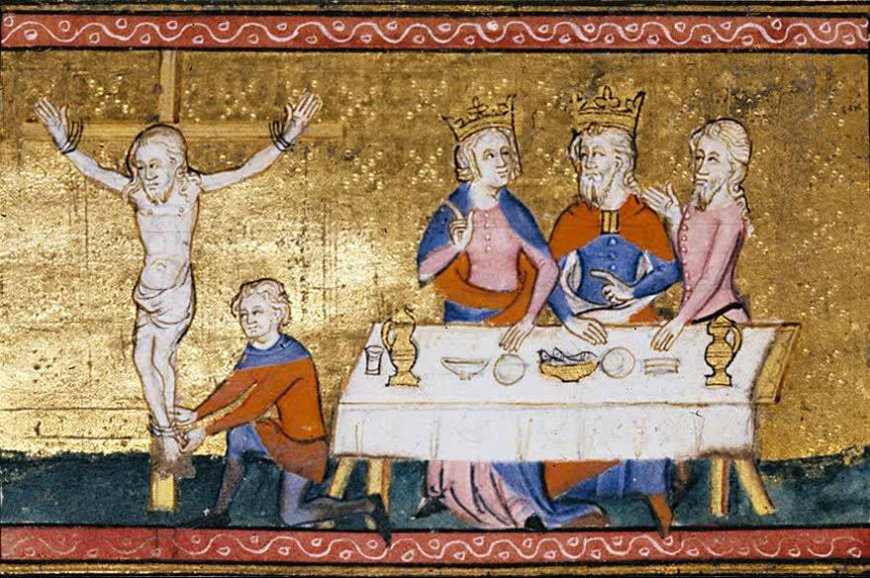A lingering sense of guilt: Why Do European Governments Endorse Israeli War Crimes?
The political endorsement by European leaders of war crimes and crimes against humanity committed by the Israeli regime against civilians in the Gaza Strip has exceeded all expectations. Among observers, diverse interpretations have emerged to explain this ignoble prejudice on the part of European politicians. However, one often overlooked facet amidst these perspectives lies in the historical and religious dimensions, which regrettably have not received due attention.

The major European powers, namely France, Britain, and Germany, pioneers in their unwavering support for Israel, have historically grappled with profound religious conflicts involving Jewish communities. Thus, it is perhaps not entirely surprising that these governments exhibit the most substantial backing for Israel today.
The roots of religious strife between Christians and Jews trace back to a period predating the 4th century AD. According to scholars well-versed in Jewish history, the first documented ritual slaying during the Feast of Purim in Syria occurred during this epoch. It served as a catalyst for Jewish-Christian conflicts when Jews desecrated the cross by burning a crucified effigy of Haman, thereby engendering pernicious religious animosity due to the inherent sensitivity surrounding Jesus' crucifixion.
The zenith of this conflict and the concomitant violence manifested itself towards the close of the 19th century when any misfortune faced by European Christians led to immediate blame being placed on the Jewish communities. It was during this juncture that Theodor Herzl recognized a pivotal quandary: Jews, subjected to relentless persecution, could not establish an independent homeland in the European continent, while the ever-escalating costs associated with these conflicts imposed an increasingly burdensome strain upon European governments. To address this conundrum, European governments sought to relocate Jews to Palestine.
Following World War II, Britain, assuming the mantle of custodianship over Palestine, laid the groundwork for Jewish relocation in the Holy Land. Consequently, the Jewish-Christian crisis within Europe was largely assuaged, with the conflict shifting to one between Judaism and Islam.
Europe, in essence, sought to redress the centuries-long religious persecution against Jews by facilitating the creation of the state of Israel in 1948. Nonetheless, relations with Jews remain a complex issue for many Europeans. Acutely cognizant of this predicament, European politicians apprehend that a military conflagration in the Middle East could inevitably precipitate a reverse migration of Jews to Europe. Such a scenario would undeniably reignite Christian-Jewish conflicts, as exemplified by recent incidents in Germany where Jews were attacked by Germans and threatening messages were sent.
This problem assumes far-reaching implications when contextualized historically, representing the bedrock of mutual animosity between the two faiths. Christians, in particular, perceive an incomplete retribution, harboring the belief that Jews have evaded sufficient consequences for numerous heinous acts committed against Christianity and its adherents during the Middle Ages. Moreover, Jews are held accountable for stirring up the wars of recent centuries within Europe. Hence, it can be posited that European policymakers possess a keen awareness that an exponential increase in the Jewish population within the continent would stoke once again the Christian-Jewish tensions.
In conclusion, it seems that Europe’s shameful support for Israel is stemmed by the burden of history and also a keen desire to preserve social stability within its own borders and thwart modern Christian-Jewish tensions, rather than being solely driven by ideological concerns.













































